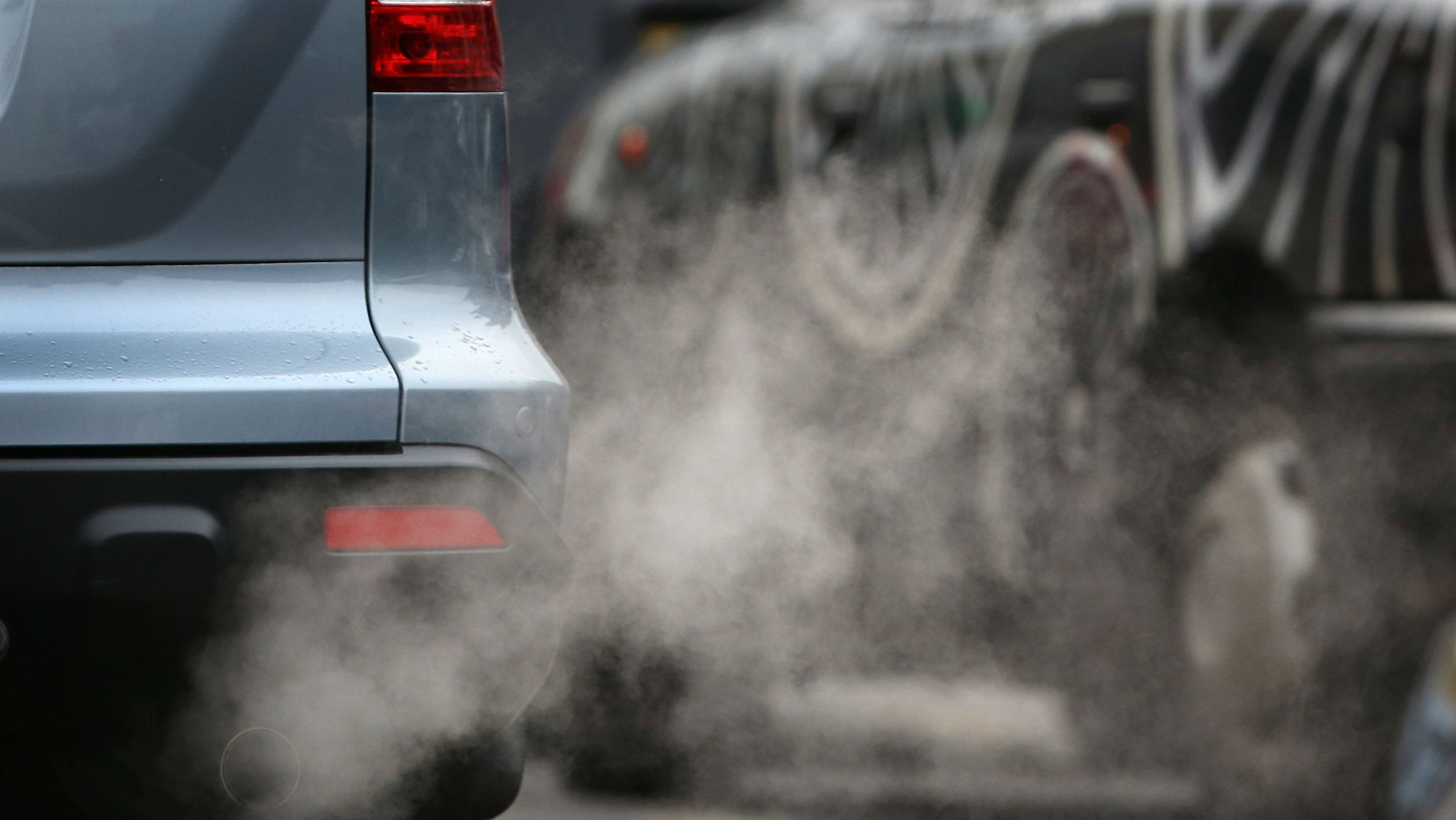Is air pollution making us stupider?
Effects of breathing in toxins include ‘huge reduction in intelligence’, study finds

A free daily email with the biggest news stories of the day – and the best features from TheWeek.com
You are now subscribed
Your newsletter sign-up was successful
Students who take exams amid heavy air pollution may perform worse than those who take the same test on a clear day, according to a study that claims that air pollution is causing a “huge reduction in intelligence”.
The report, published in the Proceedings of the National Academy of Sciences, compared the results of language and maths tests conducted on 20,000 people across China between 2010 and 2014 with data measuring levels of nitrogen dioxide and sulphur dioxide in the air.
Researchers identified a correlation between high pollution levels and “significant drops in test scores in language and arithmetic”, The Guardian reports, with the average effect on intelligence “equivalent to having lost a year of the person’s education”.
The Week
Escape your echo chamber. Get the facts behind the news, plus analysis from multiple perspectives.

Sign up for The Week's Free Newsletters
From our morning news briefing to a weekly Good News Newsletter, get the best of The Week delivered directly to your inbox.
From our morning news briefing to a weekly Good News Newsletter, get the best of The Week delivered directly to your inbox.
The impact was particularly severe on the elderly, which could have “serious consequences” for major financial decisions made late in life, Sky News reports.
Young people may also be at risk, as the study “suggests that high levels of air pollution have a short-term impact on intelligence, meaning students may perform worse if they take important exams on polluted days”.
The longer the subjects had been exposed to unclean air, the larger the reduction in their recorded cognitive ability on the tests.
Although the study was carried out using data from Chinese subjects, the findings have global ramifications. Earlier this year, a report by the Health Effects Institute found that 95% of the world’s population breathe unclean air.
A free daily email with the biggest news stories of the day – and the best features from TheWeek.com
Xiaobo Zhang, of Peking University, one of the authors of the study, told CNN that the findings were alarming for developing countries, where air quality is particularly poor.
“The damage on cognitive ability by air pollution also likely impedes the development of human capital,” he said, suggesting that “the indirect effect of pollution” on the welfare of newly industrialising nations “could be much larger than previously thought”.
Aarash Saleh, a doctor of respiratory medicine and an anti-pollution campaigner, said the new study adds to a “concerning bank of evidence” linking exposure to unclean air with poorer cognitive function.
-
 Political cartoons for February 21
Political cartoons for February 21Cartoons Saturday’s political cartoons include consequences, secrets, and more
-
 Crisis in Cuba: a ‘golden opportunity’ for Washington?
Crisis in Cuba: a ‘golden opportunity’ for Washington?Talking Point The Trump administration is applying the pressure, and with Latin America swinging to the right, Havana is becoming more ‘politically isolated’
-
 5 thoroughly redacted cartoons about Pam Bondi protecting predators
5 thoroughly redacted cartoons about Pam Bondi protecting predatorsCartoons Artists take on the real victim, types of protection, and more
-
 Epstein files topple law CEO, roil UK government
Epstein files topple law CEO, roil UK governmentSpeed Read Peter Mandelson, Britain’s former ambassador to the US, is caught up in the scandal
-
 Iran and US prepare to meet after skirmishes
Iran and US prepare to meet after skirmishesSpeed Read The incident comes amid heightened tensions in the Middle East
-
 Israel retrieves final hostage’s body from Gaza
Israel retrieves final hostage’s body from GazaSpeed Read The 24-year-old police officer was killed during the initial Hamas attack
-
 China’s Xi targets top general in growing purge
China’s Xi targets top general in growing purgeSpeed Read Zhang Youxia is being investigated over ‘grave violations’ of the law
-
 Panama and Canada are negotiating over a crucial copper mine
Panama and Canada are negotiating over a crucial copper mineIn the Spotlight Panama is set to make a final decision on the mine this summer
-
 Why Greenland’s natural resources are nearly impossible to mine
Why Greenland’s natural resources are nearly impossible to mineThe Explainer The country’s natural landscape makes the task extremely difficult
-
 Iran cuts internet as protests escalate
Iran cuts internet as protests escalateSpeed Reada Government buildings across the country have been set on fire
-
 US nabs ‘shadow’ tanker claimed by Russia
US nabs ‘shadow’ tanker claimed by RussiaSpeed Read The ship was one of two vessels seized by the US military